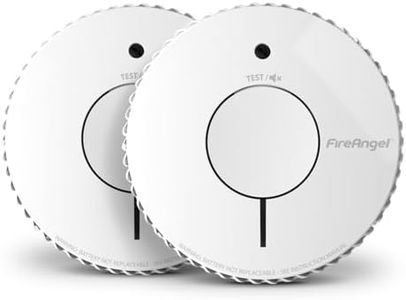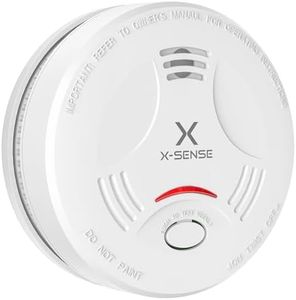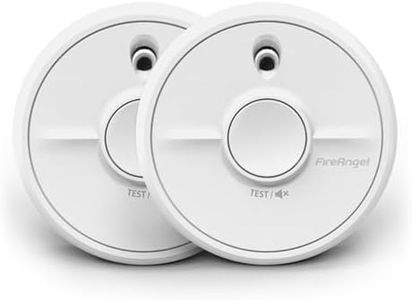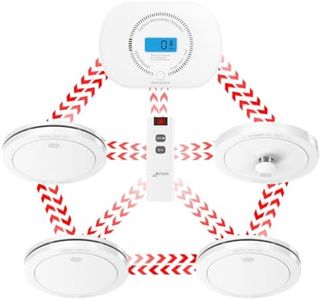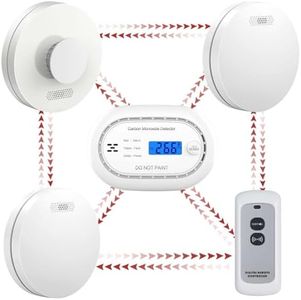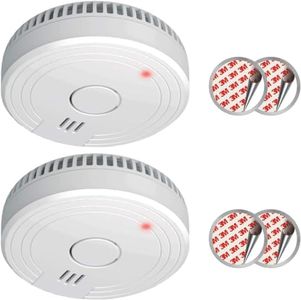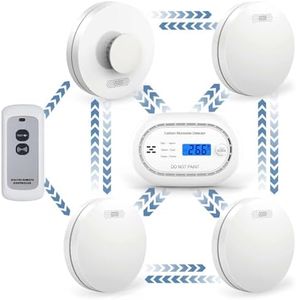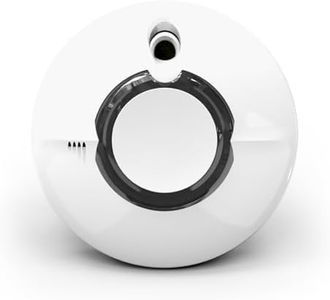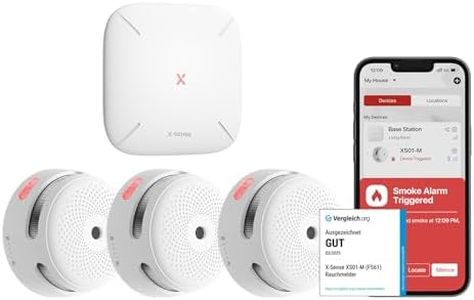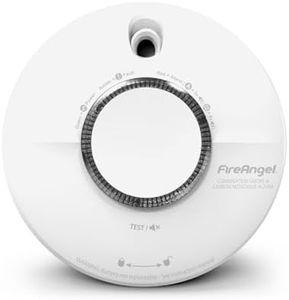We Use CookiesWe use cookies to enhance the security, performance,
functionality and for analytical and promotional activities. By continuing to browse this site you
are agreeing to our privacy policy
10 Best Smoke Alarms
From leading brands and best sellers available on the web.Recommended lists
Buying Guide for the Best Smoke Alarms
Choosing the right smoke alarm is crucial for ensuring the safety of your home and family. Smoke alarms are designed to detect smoke and alert you to potential fires, giving you precious time to evacuate or address the situation. When selecting a smoke alarm, consider the type of sensor, power source, additional features, and installation requirements. Understanding these key specifications will help you make an informed decision that best suits your needs and living environment.Type of SensorSmoke alarms typically use one of two types of sensors: ionization or photoelectric. Ionization sensors are better at detecting fast-flaming fires, while photoelectric sensors are more responsive to smoldering fires. Some alarms combine both types of sensors for comprehensive coverage. Consider the types of fires most likely to occur in your home and choose a sensor type accordingly. For the best protection, a dual-sensor alarm is recommended.
Power SourceSmoke alarms can be powered by batteries or connected to your home's electrical system. Battery-powered alarms are easy to install and continue to work during power outages, but they require regular battery replacement. Hardwired alarms are more reliable in terms of power supply but may require professional installation. Some models offer a combination of both, with a battery backup for added security. Choose based on your preference for ease of installation and maintenance.
InterconnectivityInterconnected smoke alarms communicate with each other, so when one alarm detects smoke, all alarms in the network sound an alert. This feature is particularly useful in larger homes, ensuring that everyone is alerted regardless of where the fire starts. Interconnectivity can be achieved through hardwiring or wireless technology. Consider this feature if you have a multi-story home or want to ensure maximum coverage.
Additional FeaturesModern smoke alarms may come with additional features such as carbon monoxide detection, voice alerts, or smart home integration. Carbon monoxide detection is crucial if you have gas appliances, while voice alerts can provide specific location information during an emergency. Smart alarms can send alerts to your phone, allowing you to monitor your home remotely. Consider which features align with your lifestyle and safety needs.
Installation and MaintenanceProper installation and regular maintenance are key to ensuring your smoke alarm functions correctly. Some alarms are designed for easy installation, while others may require professional help. Regular testing and cleaning, as well as timely battery replacement, are essential for maintaining functionality. Consider your ability to perform these tasks when choosing a smoke alarm, and opt for models with user-friendly maintenance features if needed.
